- Home
- slideshows
- miscellaneous
- Robot nutrition, AI drug discovery, and neuro-rehabilitation: 11 of the most exciting healthcare startups in Europe
Robot nutrition, AI drug discovery, and neuro-rehabilitation: 11 of the most exciting healthcare startups in Europe
1. Babylon Health (UK)

2. MindMaze (Switzerland & US)
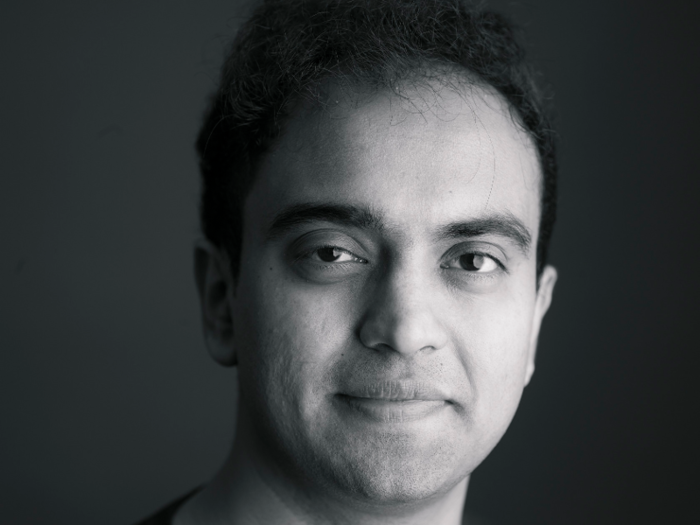
MindMaze develops what it desribes as human-machine interfaces, including medical-grade virtual reality products to aid neural recovery. It works with hospitals to provide patients with VR rehabilitation programs.
The company is based in Lausanne, Switzerland, as well as the US, and last year it teamed up with British Formula One team McLaren to test MindMaze's tech in the context of motorsport safety and performance.
Total funds raised: $108 million plus
Total staff: 180
3. Elvie (UK)
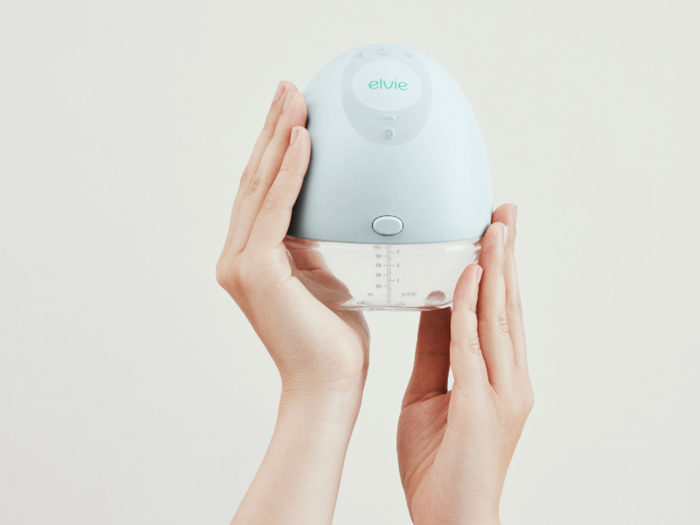
Elvie's two flagship products are a discreet, wearable breast pump, called the Elvie Pump, and a device for training the pelvic floor area in five-minute bursts, called the Elvie Trainer. The pelvic trainer is used by the UK's National Health Service, and the startup raised $42 million in a Series B round last April.
The company's CEO, Tania Boler, is not from a conventional tech background, having previously worked as a women's health campaigner for the UN and other organizations. In April 2019, she told BI how she was driven by rage at the poor quality of women's health tech she encountered during her campaign work to found her firm.
Total funds raised: $62 million plus
Total staff: 82
4. Cera Care (UK)
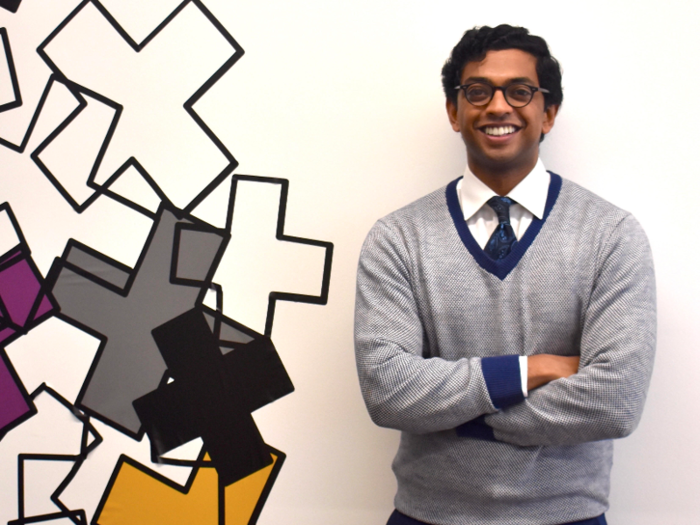
UK-based Cera provides an online marketplace that matches carers to patients. It works with both public entities like the Barts NHS Trust (a sub-branch of the NHS) to stop bed-blocking in hospitals, and private entities like Uber to provide patient transport.
Amid growing concerns about Europe's aging population, Cera forms part of a broader movement within Europe towards technologizing care of the elderly. Careship, a startup based in Germany, provides a comparable service.
Total funds raised: $20 million plus
Total staff: 2000
5. BenevolentAI (UK)
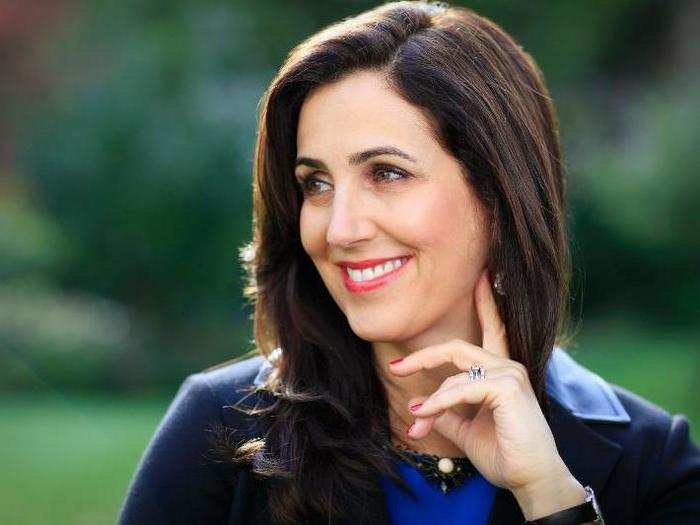
London-based BenevolentAI says it uses artificial intelligence algorithms to analyze massive amounts of data to help propose novel drug targets.
Led by the ex-Facebook executive and UK government minister Baroness Joanna Shields, it was valued at $2 billion in April 2018, though this was halved to $1 billion in September of last year. Its European presence also extends to Antwerp, Belgium, where a group of its engineers is based.
Total funds raised: £205.5 million ($268 million)
Total staff: 228
6. Karakuri (UK)
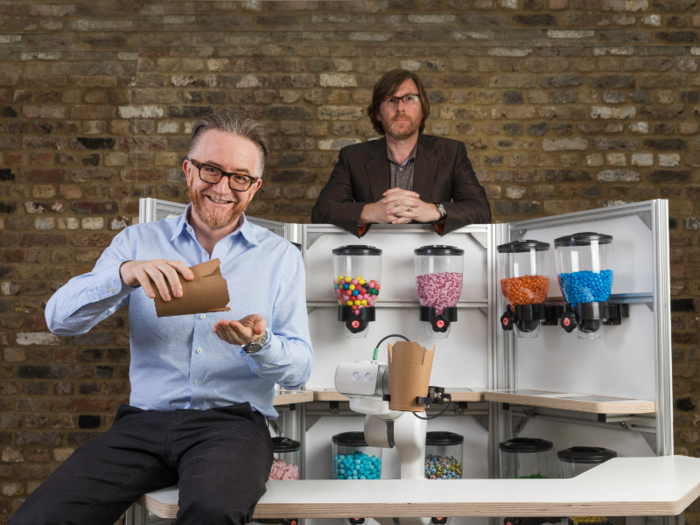
Led by CEO Barney Wragg, Karakuri has built 'robot chefs' to automate and improve food preparation. It ultimately aims to provide hungry workers everywhere with personalized, ultra-precise meals that can be tweaked to accommodate individual dietary requirements and taste preferences.
Karakuri also aims to use its tech to reduce reliance on plastic packaging, and it has partnered with UK online supermarket Ocado, which is also its main backer. Wragg was named in BI's list of the 100 most important and impactful people in UK tech for 2019.
Total funds raised:$9 million
Total staff: 20
7. KRY (Sweden)
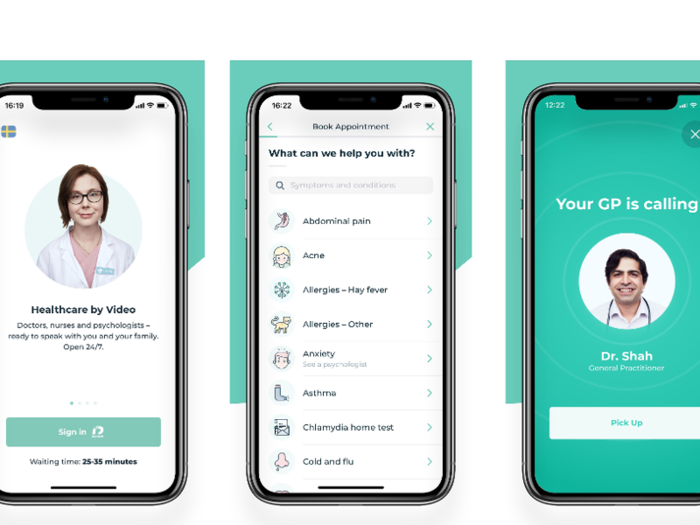
KRY's app lets patients book and undertake video appointments with GPs and qualified health professional in a matter of minutes, through either their smartphone or tablet.
Since it was launched in 2015, Stockholm-based KRY claims to have facilitated over 1.4 million completed patient meetings. It is backed by some of Europe's savviest tech investors including Index Ventures and Accel – both of which contributed to its €140 million ($155 million) Series C fundraise in January 2020.
KRY operates in Sweden, Norway and Germany, while it trades under the brand name 'LIVI' in the UK and France.
Total funds raised: $244 million
Total staff: 250 (and 800 clinicians)
8. Onera Health (Netherlands & US)
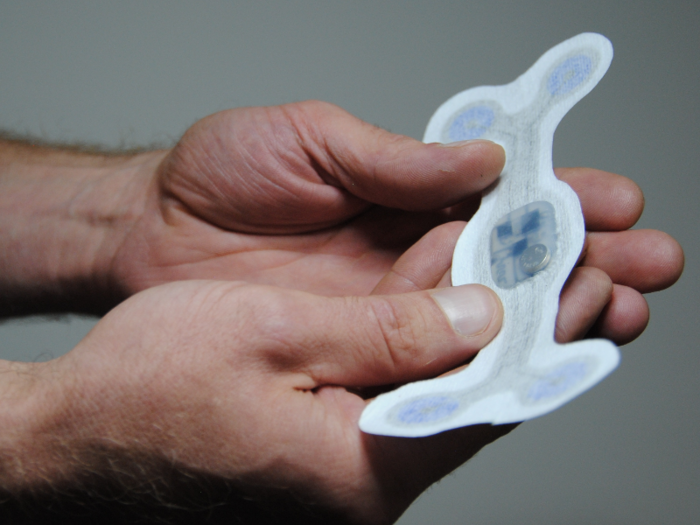
Onera Health develops smart 'patches' (which essentially look like fancy bandaids, as shown above) to monitor people's breathing patterns at night. Using this data, the patches are able to measure sleeping patterns, identify sleeping disorders, and ultimately, improve the quality of people's sleep.
Although Onera is headquartered in the States, its research and development takes place in Europe – specifically, in Eindhoven in the Netherlands.
Total funds raised: $9.3 million plus
Total staff: 28
9. AMRA (Sweden and US)
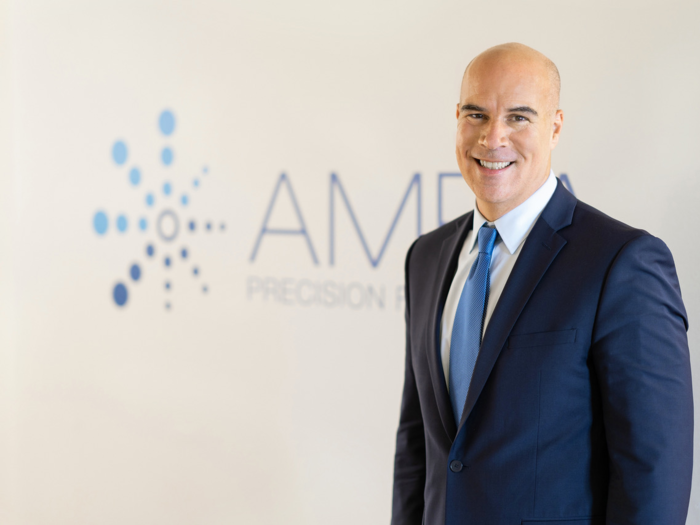
Based in Linköping in southern Sweden with an office in Chicago, AMRA converts MRI scans into analyses of people's bodies, including muscle and fat measurements for any region of the body, making its tech a potential fit for a whole swathe of industries, from sports science to caring for the elderly.
The company also carries out its own academic research – research which has often laid the foundations for the development of its tech – and is partnering with the healthcare industry to enhance the efficiency of clinical trials and accelerate drug development.
Total funds raised: $17 million
Total staff: 50 plus
10. Dacadoo (Switzerland)
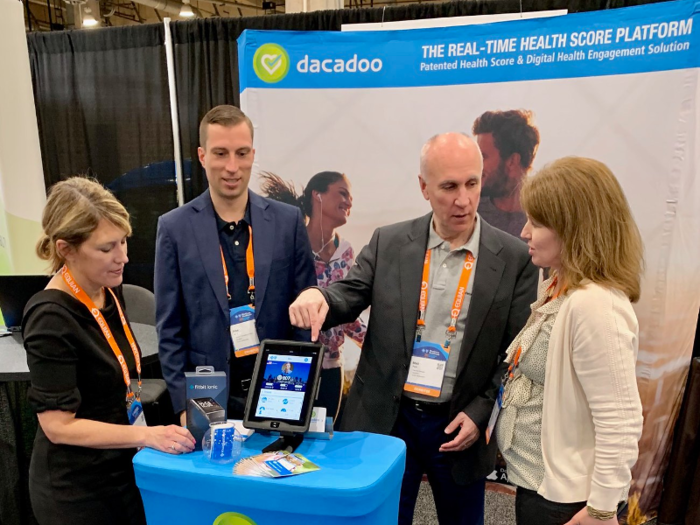
Dacadoo is a Zurich-based firm that's created a platform to help people maintain healthy lifestyle habits. It's developed a "health score": a number between 0 and 1,000 its assigns to users which increases and decreases in close to real-time according to changes in their bodily health, mental health, and lifestyle.
The health score is arrived at through a range of different methods, including self-assessment questionnaires and by tracking different physical activities directly. These activities are tracked either by Dacadoo's app or taken from third-party devices or apps, such as Fitbit trackers, that provide health-related information about users.
Total funds raised: $70 million plus
Total staff: 105
11. Psious (Spain)
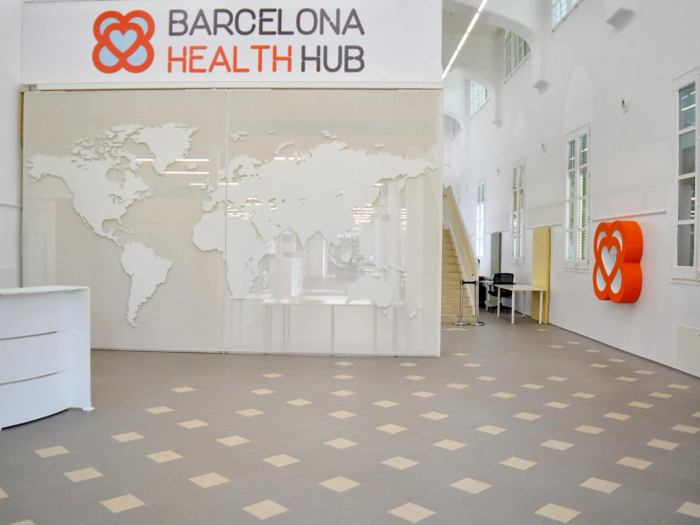
Barcelona-based Psious has developed a virtual reality platform for treating phobias and anxiety disorders. The platform comprises over 70 VR "environments" catered to specific disorders, with 15,000 patients treated across 50 countries.
It has worked with a range of world-renowned medical and academic institutions such as the UK's National Health Service, as well as the US universities Stanford and UCLA.
Total funds raised: $10.1 million
Total staff: 40
Popular Right Now
Popular Keywords
Advertisement